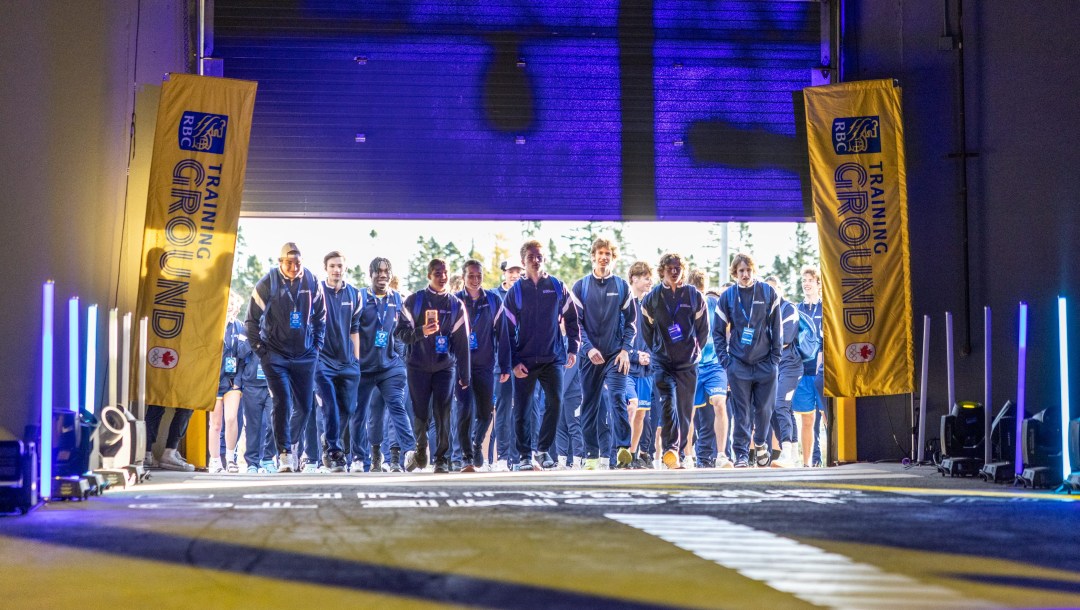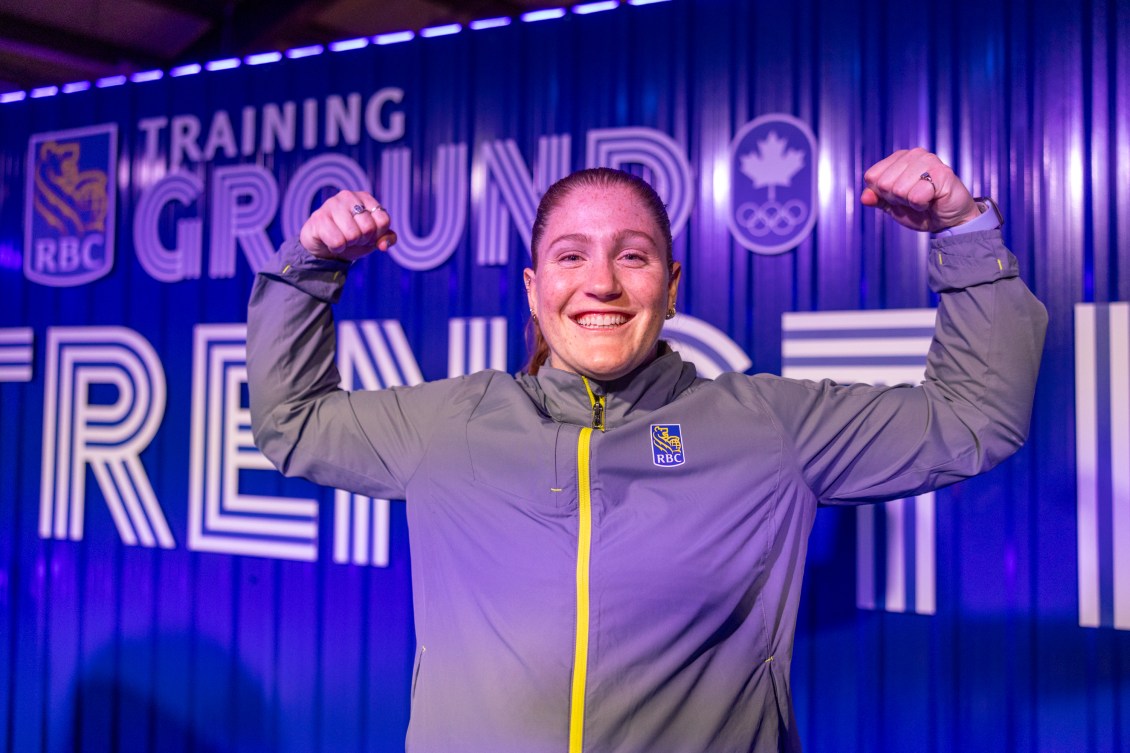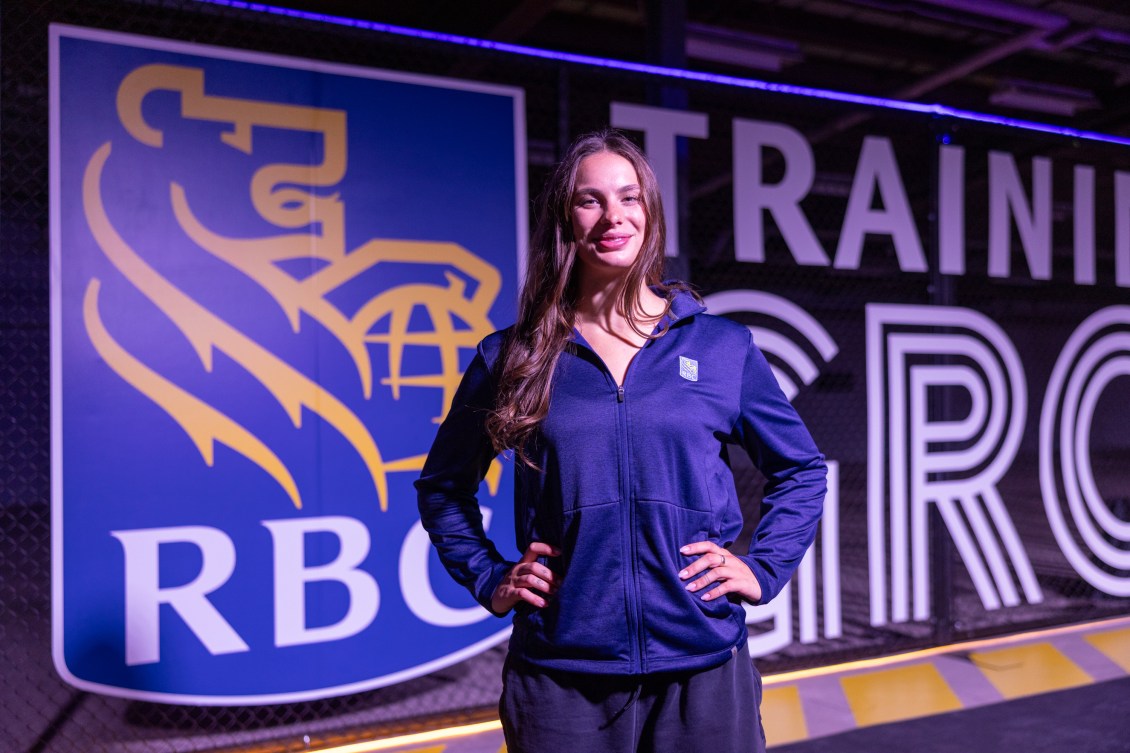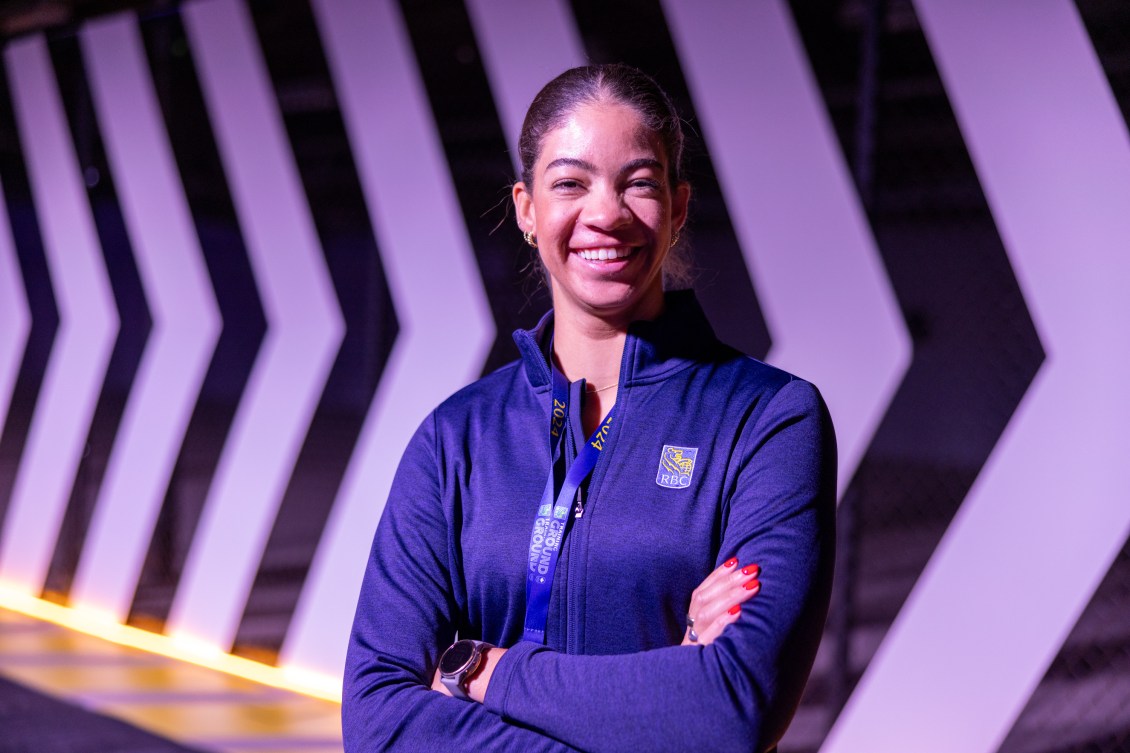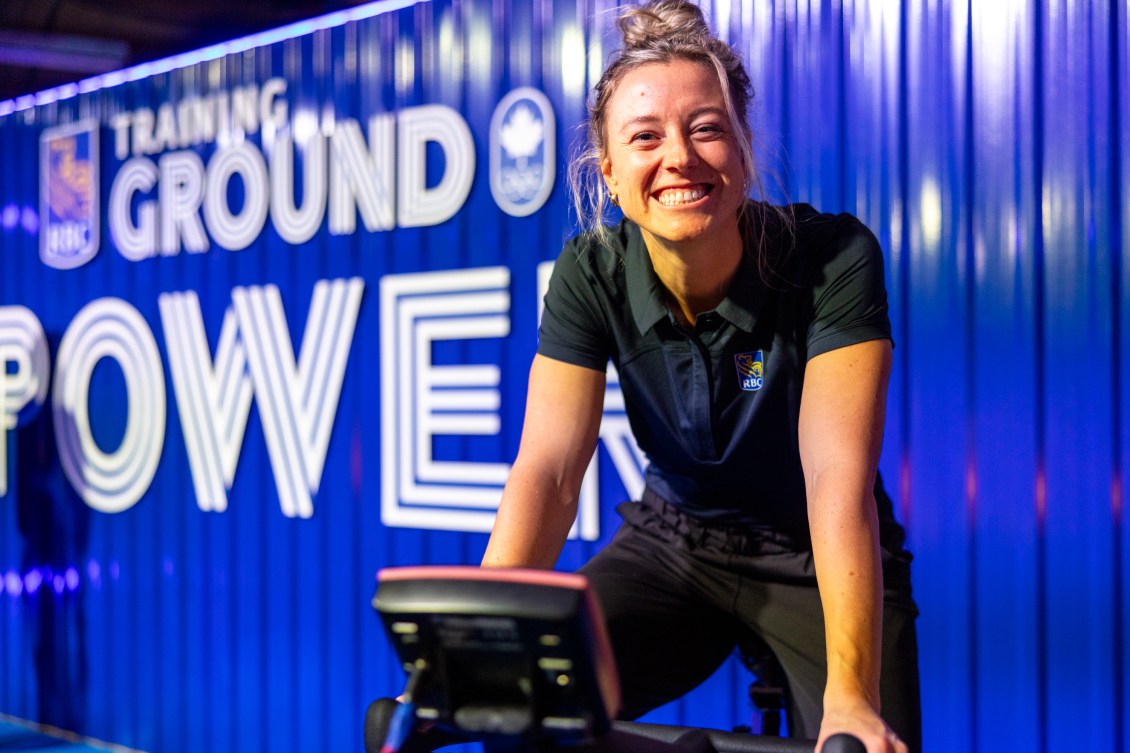Widening the high performance pathway: RBC Training Ground celebrates its ninth year of finding and funding Team Canada talent
High performance sport should be accessible to all.
This is the belief that animates RBC Training Ground. Now wrapping its ninth year, the program travels across the country looking for talented and determined athletes who can fuel the Canadian Olympic pipeline—as long as they are given a shot.
This year, RBC Training Ground hosted 21 qualifying events all over Canada and saw more than 2100 athletes participate. At the qualifying events, athletes underwent speed, endurance, strength, and power testing under the watchful eye of National Sport Organization partners looking for their next generation of Olympians.
The Top 100 athletes were invited to the National Final in Halifax in early November for one last chance to compete for extended funding to support their athletic dreams. The Top 30 athletes will be named as RBC Future Olympians, which in addition to the funding means access to top coaches and mentorship opportunities to better enable them to chase their Olympic dreams.
The successful track record is there. Twenty-one Team Canada Olympians–14 of whom are Olympic medallists–count themselves as RBC Training Ground alumni. At the Paris 2024 Olympic Games, RBC Training Ground alumni were on the podium as members of the women’s eight rowing crew, the women’s rugby team, and the men’s 4x100m relay team.
For many athletes, RBC Training Ground is an opportunity to consider sports that they might have never otherwise had access to, but for which they may be uncommonly suited.
For example, after participating in a qualifying event this year, Laurie Gagnon found that her background in gymnastics had left her with skills that piqued the interest of coaches in sport climbing and aerials skiing. The interest in aerials was mutual, so Gagnon tried it over the summer—and loved it.
For other athletes, such as sport climber Dylan Le, RBC Training Ground can help accelerate development within a sport that they are already passionate about.
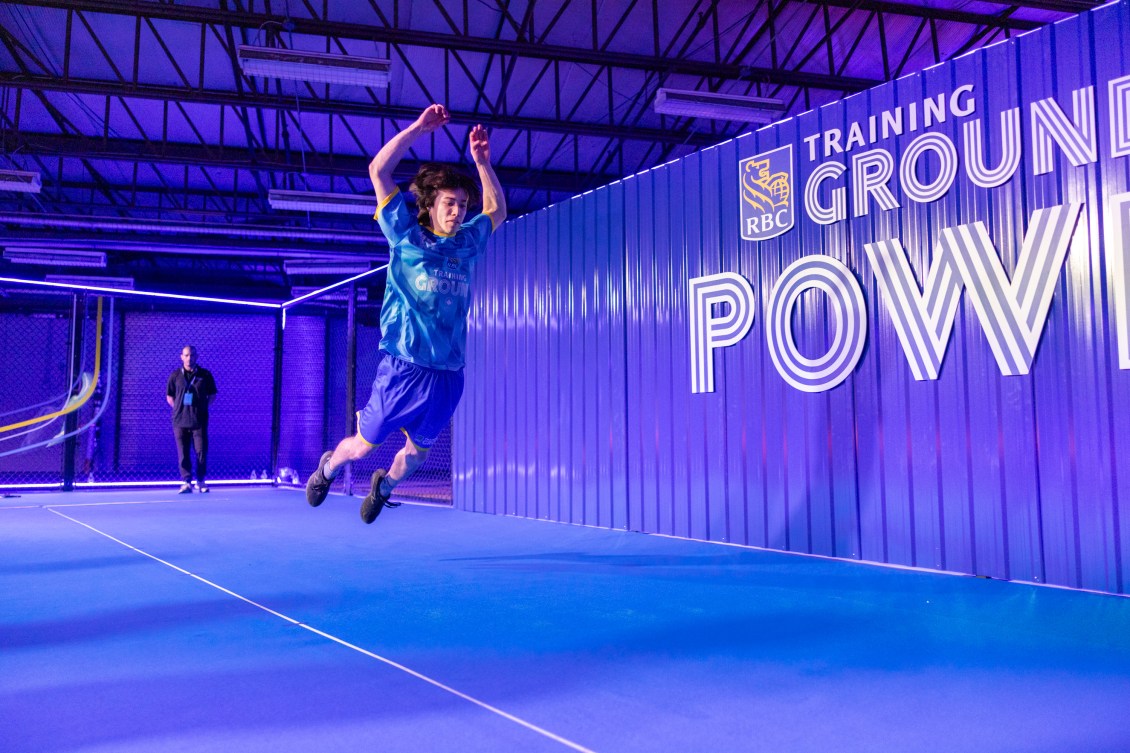
“With RBC [funding], it would allow me to do more World Cups and competitions. I usually do two or three, but with funding I could probably do a full season,” Le said.
With the world rankings based on points secured at World Cups, his absence at such events directly hinders his chance at qualifying for the Olympic Games, making RBC Training Ground support even more important
“I’m nowhere near my real level [on the ranking list] because I only go to half of them [World Cups],” said Le. “I don’t want to put the weight of it on my parents to pay for it.”
Similarly, Darby Beeson entered RBC Training Ground already passionate about a sport—speed skating. But throughout the process, she also discovered that she is in a high percentile in jumping skills, which could open new high performance opportunities.
Beyond the possibility of funding and mentorship opportunities, Beeson has found real interpersonal benefits to participating in the RBC Training Ground process.
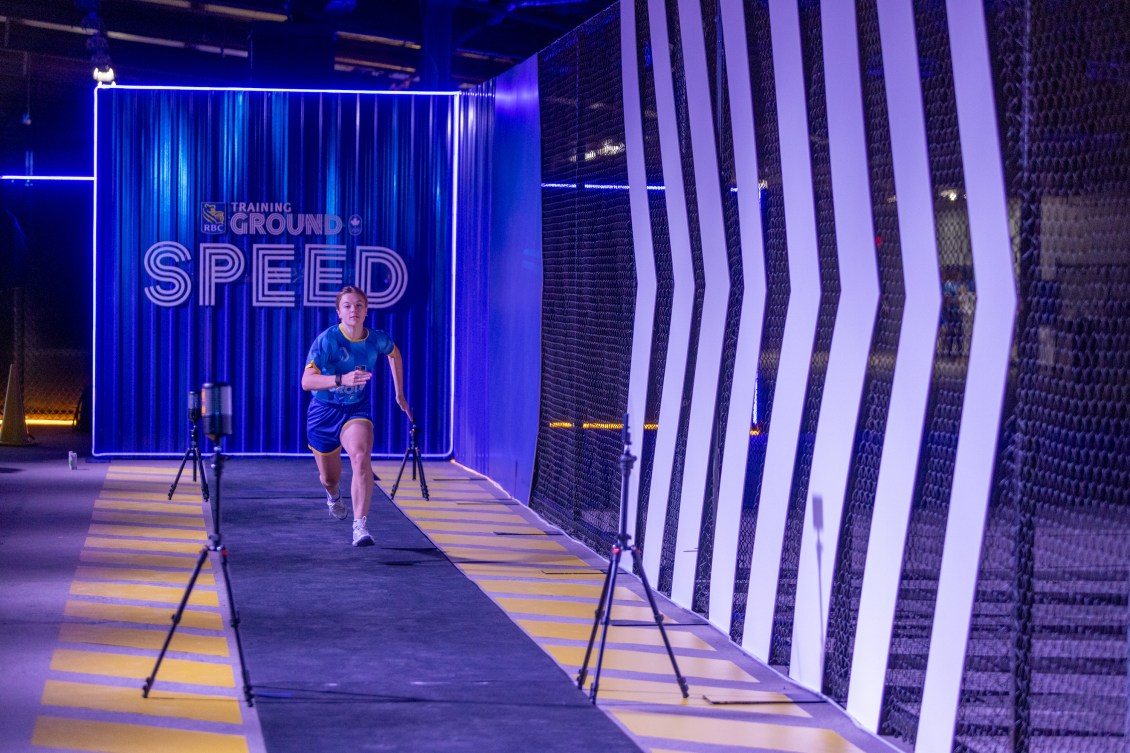
“I’m a very shy person, so being able to just approach people and ask them: ‘What sport do you do? How long have you been doing it? Did you go through RBC Training Ground for it?’ Just approaching people is going to be a lot easier for me now,” Beeson said.
She also feels proud to have made it to the National Final as someone who has had to deal with specific challenges within sport participation.
“I’m a part of a club foot ambassador group, so showing what club foot is and how it affects kids especially is really important to me,” Beeson said. “For me, it’s about showing young kids, especially with the same condition as me, that you can do this—you can go into sport and you can succeed.”
For any Canadians aged 14-25 who love a challenge, Gagnon encourages them to give a local RBC Training Ground qualifying event a shot. The program is visiting 20 cities in 2025 to resume the talent search for its tenth season, and athletes can sign up for free to start their Olympic journey.
“Every single part of the process is so cool, and there’s so many opportunities to try new things—give it your all and have fun.”
Top 30 Finalists:
Noah Beaton, Wolfville, NS
Justine Blatt-Janmaat, Victoria, BC
Braeden Bossert, Victoria, BC
Dallen Brereton-Stiles, Coquitlam, BC
Chloe Bryer, Burlington, ON
Cameron Chadwick, Barrie, ON
Nikita Ciudin, Dartmouth, NS
Griffith Coupland, Indian River, ON
Remo Cramer, Calgary, AB
Roselyne Houde, Saint-bruno-de-Montarville, QC
Laurie Gagnon, Boucherville, QC
Antoine Gagnon-Lamarche, Montreal, QC
Tyler Gevaert, Huntsville, NS
Skyler Goudswaard, Toronto, ON
Alec Haineault, Montreal, QC
Rose Laliberté-Roy, Lévis, QC
Béatrice Lamarche, Québec City, QC
Dylan Le, Montreal, QC
Luka Markon, Courtenay, BC
Aleksandar Mrdjenovich, Edmonton, AB
Jonathan Pickett, Toronto, ON
Andrew Pidwerbesky, Calgary, AB
Adia Pye, Vancouver, BC
Marianne Quirion, Sherbrooke, QC
Megan Sampson, Victoria, BC
ShonDreya Smardon, Ottawa, ON
Madelyn Vandermeer, Vancouver, BC
Ava Van Santen, Abbotsford, BC
Katja Verkerk, Victoria, BC
Lucas Zhou, Surrey, BC

